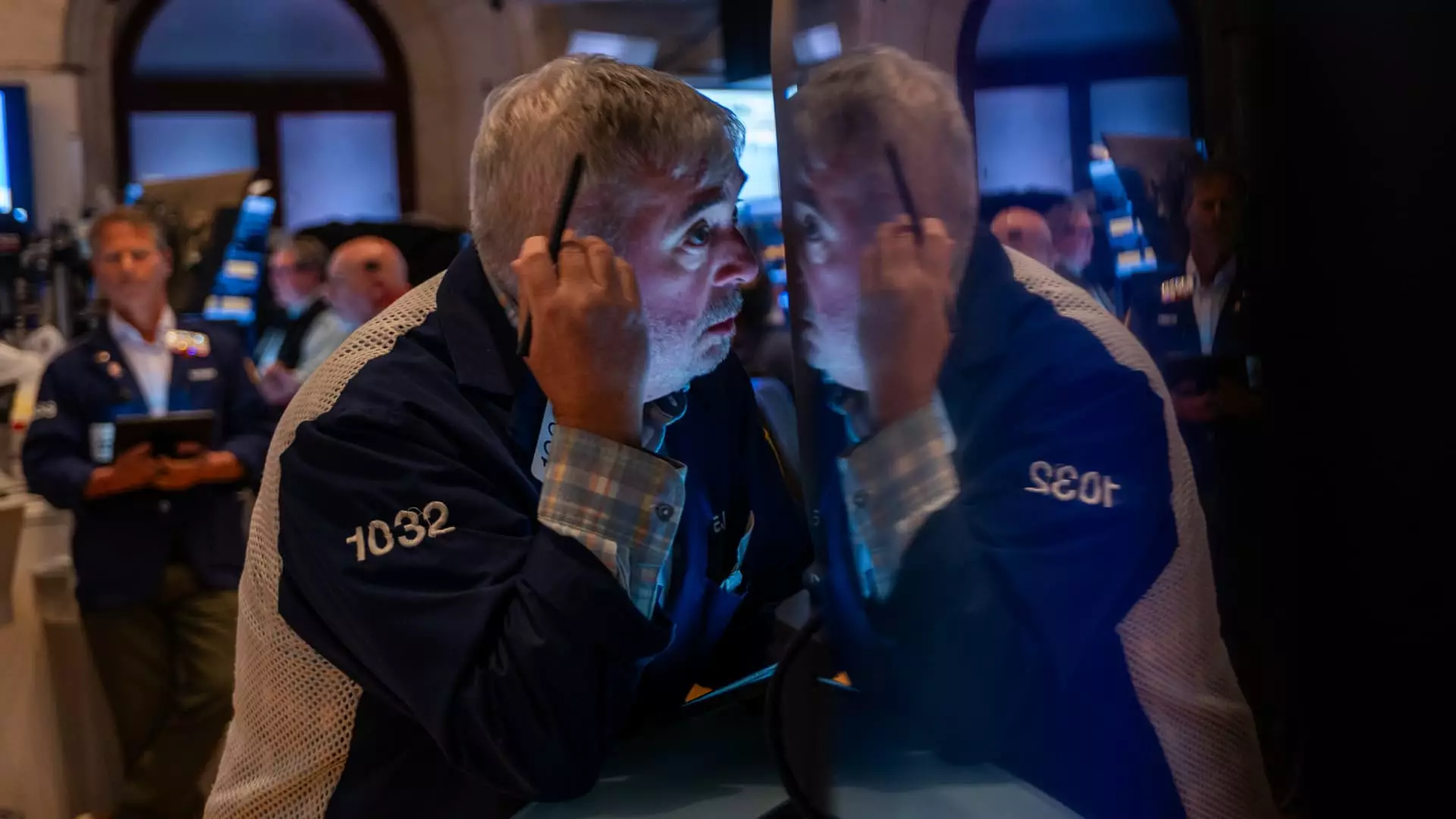In the wake of President Donald Trump’s shocking announcement of sweeping tariffs, U.S. stock futures have taken a nosedive, leaving investors reeling and analysts scrambling to reassess market forecasts. The Dow Jones Industrial Average futures plummeted by 918 points or approximately 2.2%, laying bare the fragility of the once-bullish sentiment that had characterized the market. As the S&P 500 and Nasdaq-100 followed suit, the collective values of major financial indices reflected a palpable unease – a market responding sharply to the unpredictability of the current administration’s trade policies.
How did we arrive at this cliffhanger? The introduction of a baseline tariff rate of 10% on various nations, with the possibility of even steeper tariffs aimed specifically at countries imposing harsher rates on U.S. goods, sets a precarious landscape for businesses. This sudden shift not only signals a potential unraveling of existing trade agreements but raises the ire of traditional market drivers—multinational companies that depend heavily on global supply chains. Giants like Nike and Apple saw their shares plunge by about 7% in after-hours trading, an indication that market optimism has officially waned.
Global Trade War on the Horizon
The opacity of the tariff design, where the U.S. administration openly states that they’ll impose tariffs “less than” half of what other nations charge, has created a chaotic scenario for traders. Trump’s assertion seems more like a hastily crafted argument than a thoughtful economic strategy; the implications, however, are far from trivial. For traders hoping to stabilize the economy, the unclear implications surrounding these tariffs invoke fears of a global trade war. Just as the dust settles from prior tariffs, new ones are rising, throwing a wrench into the interconnected gears of the global economy.
Moreover, the announcement is a departure from previous expectations, elevating the uncertainties surrounding prospective tariffs from a cap to a potential minimum. Unfortunately, financial markets thrive on predictability, and this abrupt transition has inspired a ‘risk-off’ mood; thus, tech shares such as Nvidia and Tesla experienced sharp declines, showcasing not just losses in stocks but a broader erosion of trust in governmental consistency.
Recession Fears Loom Large
This overwhelming uncertainty has tangible effects on economic indicators. Sluggish data and a palpable sense of hesitation in both consumer spending and business investment further compound the risks of spiraling into a recession. With fears running rampant among economists regarding an impending slowdown, it’s essential to spotlight the administration’s aggressive tariff plans that many believe could further exacerbate inflation – a fate too ironic to ignore during an era defined by economic recovery.
Art Hogan, the chief market strategist at B. Riley Wealth Management, articulates this predicament succinctly: “What was delivered was as haphazard as anything this administration has done to date.” These comments underscore the palpable disconnect between the administration’s strategies and the realities faced by investors. Markets do not respond well to uncertainty, and this apparent confusion is likely to unleash a wave of volatility— a sentiment that has already infiltrated trading behaviors across the board.
In fact, the S&P 500, previously rising on the hope that the tariffs would be moderate, now finds itself once again vulnerable to market corrections. Tacitly acknowledging this reality, traders are beginning to brace for what they fear could be another market dive as adverse effects of this robust tariff framework unfold.
A Call for Rational Trade Policies
Underneath the heavy rhetoric of protectionism lies the importance of rational trade policies that nurture economic collaboration rather than stifle growth. A collaborative approach would not only shield American industries from foreign competition but also foster a healthier economic environment, ripe for innovation and progress. Instead, the position taken by the current administration is nothing short of a gamble— one that could tarnish the economic gains made in previous years.
Rather than embracing walls of tariffs, a more discerning approach that encourages dialogue and partnership between nations seems imperative. The convoluted nature of Trump’s measures serves to endanger not only the immediate financial landscape but the long-term viability of economic growth. The stakes couldn’t be higher, as the world watches closely how policy decisions will unfold and impact the global economic order in this age of unpredictability.

Leave a Reply